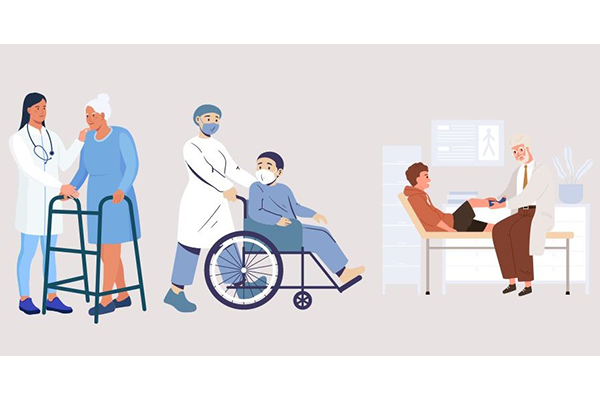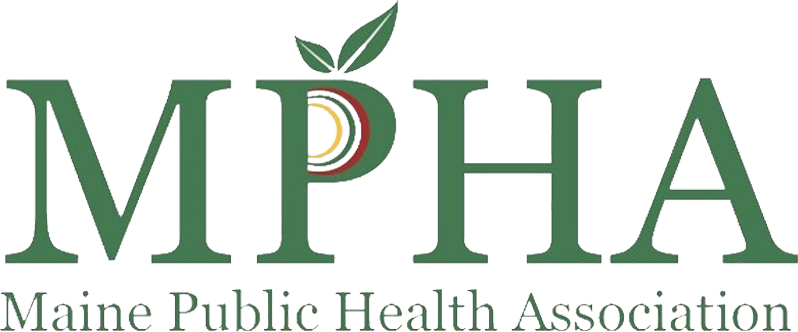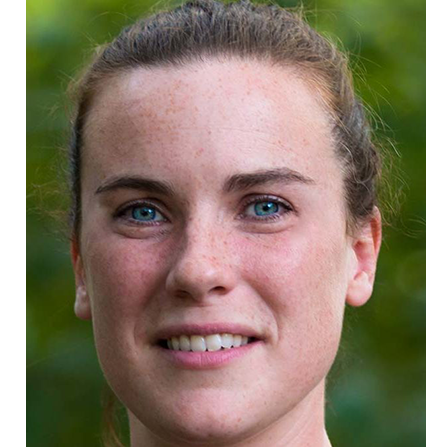
Public Health Infrastructure: From the Inside Out
How can building personal mental fortitude, wellness-oriented organizations, and equitable partnerships create a stronger, more resilient public health workforce?

Course Information
- Audience:
This course has been designed for use by all public health professionals — any role, any experience level. The content and scenarios have been intentionally created to support anyone seeking inspiration and tools to strengthen themselves, their organization, and/or their partnerships.
- Format:
This self-paced online series includes three modules, which should be completed in order. Each module will take approximately 90 minutes — we recommend setting aside a dedicated time and quiet space. Individual learners may decide to take more time in guided reflection and/or exploring the recommended supplementary material.
- Time:
4.5 Hours
- Credential(s) eligible for contact hours: Sponsored by New England Public Health Training Center (NEPHTC), a designated provider of continuing education contact hours (CECH) in health education by the National Commission for Health Education Credentialing, Inc. This program is designated for Certified Health Education Specialists (CHES) and/or Master Certified Health Education Specialists (MCHES) to receive up to 4.5 total Category I continuing education contact hours. Maximum advanced-level continuing education contact hours are 4.5. Provider ID: 1131137 Event ID:TBA
If you are not seeking a CHES/MCHES contact hours, if you complete the evaluations, you will receive a Certificate of Completion. The Certificate will include the length of the course. - Competencies: Health Equity Skills
- Learning Level: Awareness
- Accessibility: This training is delivered in a 508-compliant interface. During development of this training, we attempted to make the content accessible to individuals using screen readers. If you encounter trouble accessing the instructional materials by screen reader, or need any other accommodations in order to access the instructional materials, please contact support@nephtc.org, and we will do our best to make sure the content is accessible to you.
- Supplemental materials:
There is a reflection guide within the course
- Pre-requisites: None
- Technical Requirements:
The self-paced modules were designed to work in most modern web browsers, operating systems, and devices. Some resources are available as PDFs that will open in modern browsers or using the free Adobe Reader. The reflection guide that accompanies the modules is available as a fillable pdf.
About this Course
Welcome to Public Health Infrastructure: From the Inside Out, a self-paced three-part health equity training series to help create a stronger, more resilient public health workforce. The series begins with a focus on individual mental fortitude; expands to the topic of building equitable and wellness-oriented organizations; then wraps up with best practices for building equitable, trusted partnerships.
What you'll learn
Upon completion of this course, participants will be able to:
● Understand the context and impacts of stress and burnout; learn to build personal mental fortitude
● Learn how to integrate wellness and equity into organizational culture
● Understand what it means to build equitable partnerships, including collaborative relationships with CBOs and TA providers
Production Team
Public Health Infrastructure: From the Inside Out was created in partnership with:

National Network of Public Health Institutes

Imkada Solutions

EnVision Performance Solutions

Caravan Brand Partners
Registration
Select the Enroll Me button below to register. If you have any trouble accessing this training, contact support@nephtc.org.
Acknowledgement: This project is supported by the Health Resources and Services Administration (HRSA) of the U.S. Deparment of Health and Human Services (HHS) as part of award 2 UB6HP31685‐05‐00 “Public Health Training Centers.” The contents are those of the author(s) and do not necessarily represent the official views of, nor an endorsement, by HRSA, HHS or the U.S. Government.

Working towards Equitable Access to Health Care for People with Disabilities
How do societal attitudes and physical infrastructural limitations intersect to create barriers to accessing healthcare for individuals with disabilities, and what systemic changes are necessary to ensure equitable access to healthcare services for this population?

Register
Course Information
- Audience: All public health professionals working in nonprofits, healthcare, educational institutions, government and private sector
- Format: Webinar
- Date/Time: Thursday, May 2, 2024, 12:00 PM – 1:00 PM ET
- Price: Free
- Length: 1 hour
- Credential(s) eligible for contact hours: Sponsored by New England Public Health Training Center (NEPHTC), a designated provider of continuing education contact hours (CECH) in health education by the National Commission for Health Education Credentialing, Inc. This program is designated for Certified Health Education Specialists (CHES) and/or Master Certified Health Education Specialists (MCHES) to receive up to 1 total Category I continuing education contact hours. Maximum advanced-level continuing education contact hours are 1. Provider ID: 1131137 Event ID:TBA
If you are not seeking a CHES/MCHES contact hours, if you complete the evaluations, you will receive a Certificate of Completion. The Certificate will include the length of the course. - Competencies: Health Equity Skills
- Learning Level: Awareness
- Companion Trainings: None
- Supplemental materials:PowerPoint and follow-up email with any links mentioned during presentation.
- Pre-requisites: None
- Technical Requirements: This webinar is hosted on the Zoom platform. Please refer to the Zoom System Specifications to ensure your system meets the minimum requirements for connecting.
About this Webinar
People with disabilities face numerous barriers in accessing health care, and while, the barriers to care are numerous and diverse there has been little research done to capture information from people with disabilities directly, in their own words. Disability Rights Maine conducted a mixed-methods research project with the goal of identifying and quantifying the barriers Mainers with disabilities face when accessing health care services. This presentation will share history of how the project came to be, key findings, and describe how the findings can be used to work towards system- and policy-level changes.
What you'll learn
At the end of the webinar, participants will be able to:
- Discuss barriers to high-quality and appropriate healthcare for people with disabilities
- Identify potential strategies to address healthcare access and equity issues faced by people with disabilities
Subject Matter Expert

Jennifer Battis
Jennifer Battis is the Health Equity Project Coordinator at Disability Rights Maine (DRM) where she works to reduce systemic- and policy-level barriers to improve healthcare access and quality for people with disabilities across the state of Maine. She has over 14 years of experience working to ensure community voices are included in research and evaluation work. Most recently, she has worked with people with disabilities across the state of Maine to release a report called “’I Don’t Get the Care I Need’: Equitable Access to Health Care for Mainers with Disabilities” which described barriers to accessing health care. Prior to working at DRM, she lead evaluations and provided technical assistance to local and cross-site projects in Maine and across the United States
Registration
Select the Enroll Me button below to register for this recording. If you have any trouble accessing the recording, contact support@nephtc.org.
Acknowledgement: This project is supported by the Health Resources and Services Administration (HRSA) of the U.S. Deparment of Health and Human Services (HHS) as part of award 2 UB6HP31685‐05‐00 “Public Health Training Centers.” The contents are those of the author(s) and do not necessarily represent the official views of, nor an endorsement, by HRSA, HHS or the U.S. Government.


